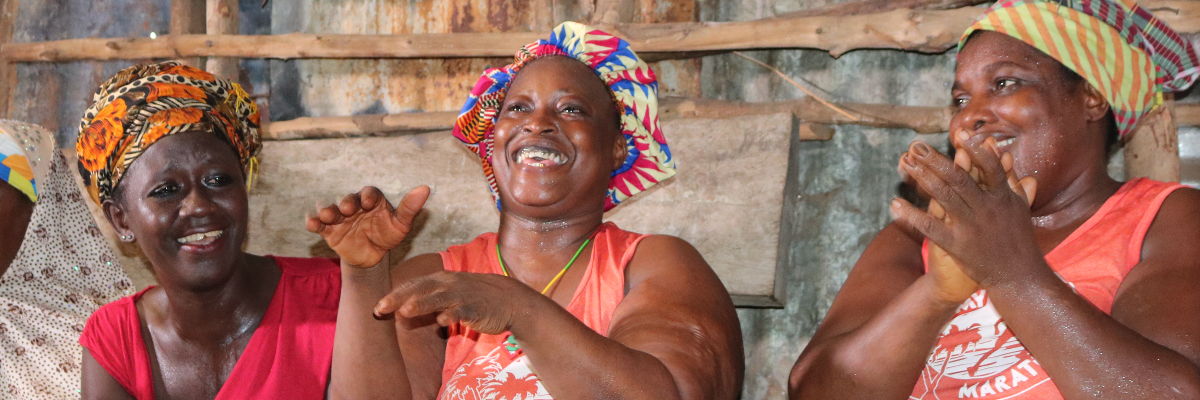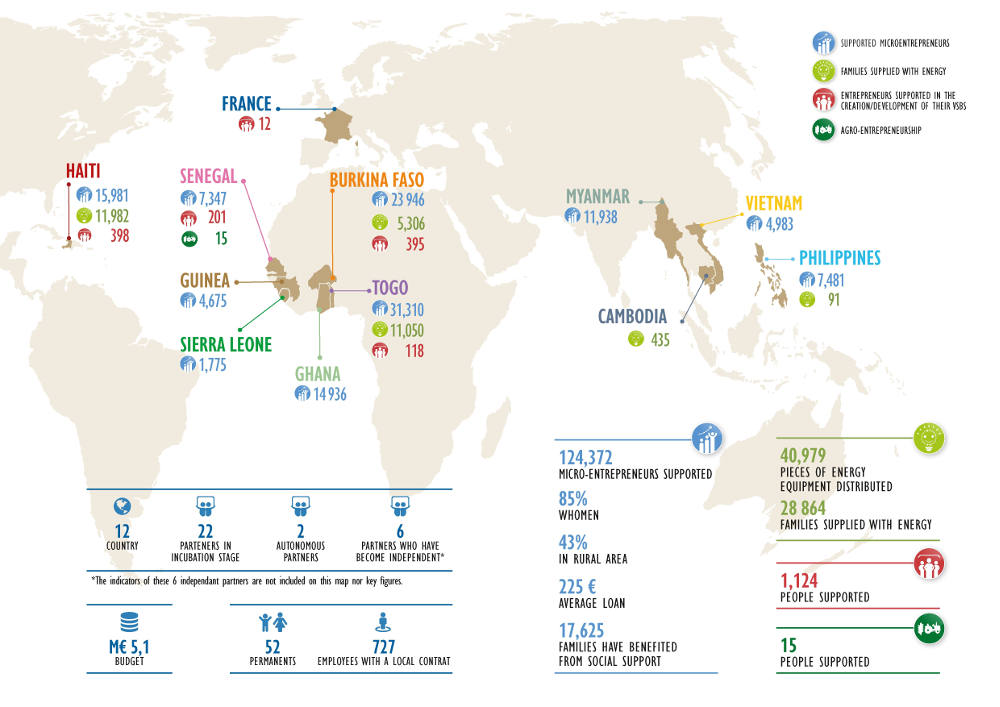The essentials of our action in 2019
For the past 22 years, we have been supporting the socio-economic integration of thousands of entrepreneurs around the world. We work in 4 domains: social microfinance support for very small businesses and for professional integration,access to energy and agro-entrepreneurship.
2019, a year dedicated to innovation and empowerment!
Innovation : we opened of a new social microfinance institution in Sierra Leone, developed a micro-insurance offer in Burkina Faso, launched a waste management training company in Togo, marketed mini-solar networks and solar egg incubators in Cambodia and the Philippines, the financing of our Energy activities through the sale of our first carbon credits, opened our first crop storage granary in Senegal, the development of our activities in France through the ICI and Un Toit Vers l’Emploi programmes.
Autonomisation : we have developed all our actions aiming at the empowerment of beneficiaries and programmes. For each of them, the objective is to achieve financial stability within 5 to 7 years.
Method and transparency : we have driven all our actions with, method, rigor and transparency, thanks to the collaboration of all of the people involved in the Entrepreneurs du Monde ecosystem: members of the Association, investors, donors, administrators of the various entities (SAS Microfinance Solidaire, The Fondation Entrepreneurs du Monde and The Entrepreneurs du Monde Endowment Fund).
Thank you for your active and generous support in this wonderful story of inclusion, innovation and empowerment !
Your generosity in 2019
Private individuals
K€ 373
Foundations and companies gifts
K€ 1,157
Public organizations
K€ 2,692
The year 2019 for each of our areas
Together, let’s continue to change almost everything!
Support our action with a donation and give us wings for 2020!


